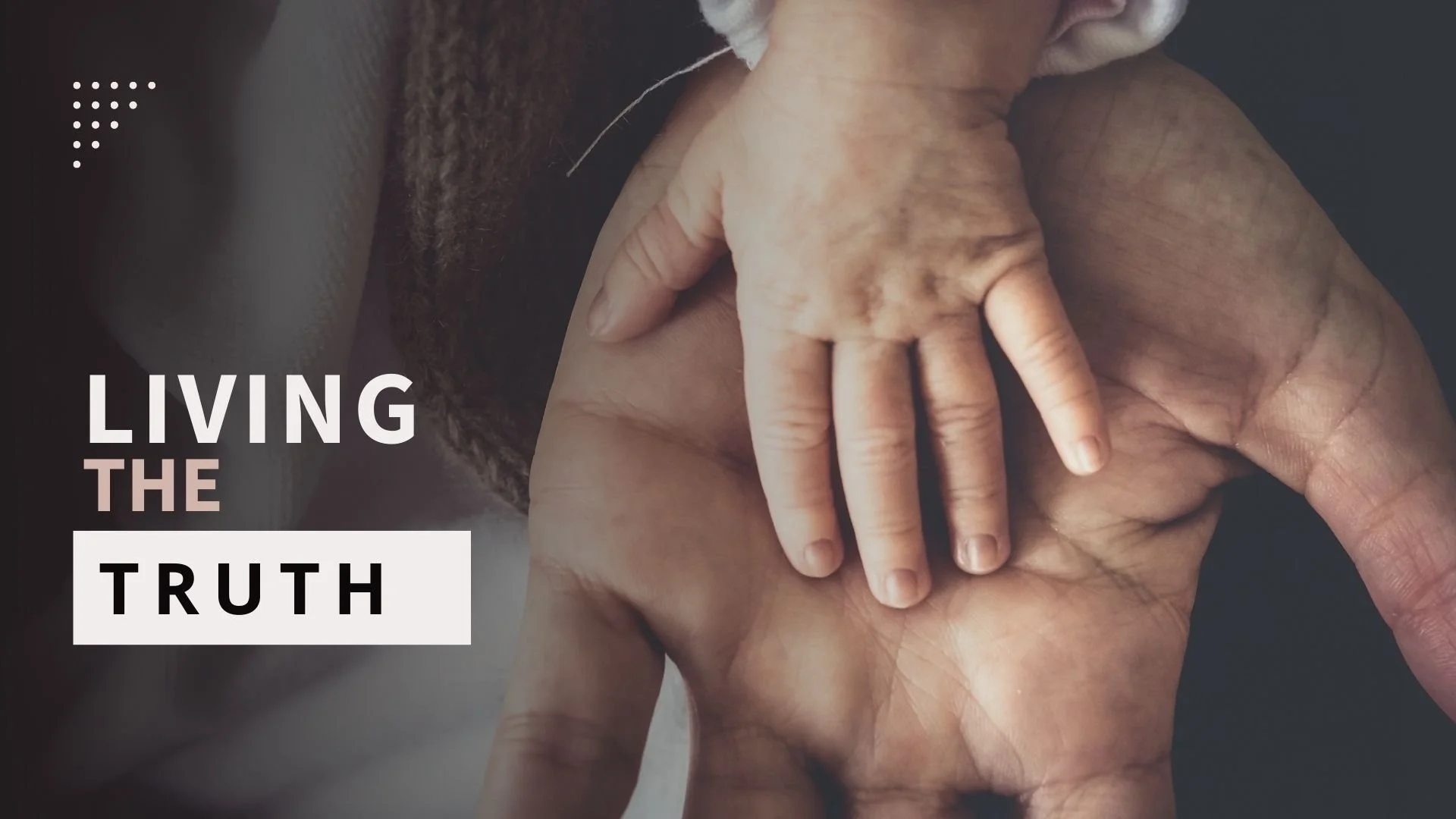Blessed is she who believed
You can read part one here.
Six months later…
The same angel Gabriel who had appeared to Zacharias in the temple was sent by God to a city of Galilee named Nazareth. The angel was sent by God to this small town to talk to a virgin whose name was Mary. Mary was pledged to be married to Joseph, a descendant of David.
Understanding the culture of the time is helpful here. At that time marriage consisted of two distinct stages: engagement followed by the marriage itself. The engagement involved a formal agreement initiated by a father seeking a wife for his son. The next most important person involved was the father of the bride. A son’s opinion would be sought more often in the process than a daughter’s. Upon payment of a purchase price to the bride’s father (for he lost a daughter and helper whereas the son’s family gained one) and a written agreement and/or oath by the son, the couple was engaged. An engagement was legally binding, and any sexual contact by the daughter with another person was considered adultery. The engagement could not be broken save through divorce (Matt 1:19), and the parties during this period were considered husband and wife (Matt 1:19–20, 24). At this time Mary likely was no more than fifteen years old, probably closer to thirteen, which was the normal age for betrothal.” (Robert H. Stein, Luke, vol. 24, The New American Commentary (Nashville: Broadman & Holman Publishers, 1992), 82.)
Hail Mary
The angel greets Mary in a normal way of address in the New Testament and Greek world. It appears that what troubled mary was not the greeting from the angel but rather the fact that she was being greeted by an angel! I grew up in Brazil and I am more familiar with the Latin “Ave Maria.” I find it interesting that in Brazil I grew up hearing this mentioned whenever someone was scared, only more recently did I realize its connection to a prayer to Mary.
Ávē Marī́a, grā́tiā plḗna,
Dóminus tḗcum.
Benedícta tū in muliéribus,
et benedíctus frū́ctus véntris túī, Iḗsūs.
or
Hail Mary, full of grace,
the Lord is with thee.
Blessed art thou amongst women,
and blessed is the fruit of thy womb, Jesus.
This portion of the prayer is biblical in the sense that the angel greeted Mary with similar words. The problem is not the words so much as saying a prayer to Mary, a human. The second part of the prayer makes this evident.
Holy Mary, Mother of God,
pray for us sinners,
now and at the hour of our death. Amen.
The Hail Mary becomes a prayer for Mary to pray for us.
We want to study the biblical text and what it has to say about Mary, but we want to be careful not to add to it.
Mary should rejoice as the angel said, she was after all highly favored, she had been “graced” by God in that she was chosen to bear God’s son. However, it is important to notice that there is no description in the biblical text of anything Mary did to deserve this honor. Whereas Zacharias and Elizabeth both came from priestly families and were described as righteous before God and blameless in the ordinances of the Lord (Luke 1:6) we have no such introduction to Mary. It is important to recognize that we infer that Mary was special because God chose her to be the mother of Jesus, but that the biblical text does not describe her as holy or sinless.
The angel tells Mary to not be afraid and adds that she has found favor/grace with God. (Luke 1:30) The emphasis is on God’s gracious choice, no comment is made regarding Mary’s personal piety before or after this verse. I am not saying that Mary was just any person, once again, we infer that she was special, after all, God entrusted her with giving birth to and raising Jesus. However, what I also want to make clear is that the Bible has no clear indication of Mary being holy or sinless.
So here’s what’s going to happen…
And behold, you will conceive in your womb and bring forth a Son, and shall call His name Jesus. He will be great, and will be called the Son of the Highest; and the Lord God will give Him the throne of His father David. And He will reign over the house of Jacob forever, and of His kingdom there will be no end.”
- Luke 1:31-33 NKJV
There’s a lot to be said about Jesus, however, in this post, I wish to focus on Mary. Perhaps in a future post, I’ll re-visit Luke 1 and focus on Jesus.
How can this be?
Mary hears all the angel has to say and then asks him a question.
Then Mary said to the angel, “How can this be, since I do not know a man?”
- Luke 1:34 NKJV
In other words, how can this be since she is a virgin? If you read the first part of Luke 1 leading to this (my post on it) you might be afraid for Mary. Zacharias asked a similar question and was mute until his son was born. (Luke 1: 18,20) What will the angel do to Mary? What will be her punishment for not believing?
And the angel answered and said to her, “The Holy Spirit will come upon you, and the power of the Highest will overshadow you; therefore, also, that Holy One who is to be born will be called the Son of God. Now indeed, Elizabeth your relative has also conceived a son in her old age; and this is now the sixth month for her who was called barren. For with God nothing will be impossible.”
- Luke 1:35-37 NKJV
Are you surprised that Mary was not reprimanded for doubting?
Don’t be, Mary was a teenage girl, a virgin. It would make sense for her to have questions about becoming pregnant. Could we not say the same regarding Zecharaias? I don’t think so. Even though both events would be miraculous Mary and Zecharias are quite different people. Zacharias was an experienced priest, he had much more experience with God and better knowledge of God. Mary would not have had the same opportunities to learn that Zacharias had, also Mary had not been around for that long, she was in all likelihood a teenage girl. God deals with each one according to the light they had received. I praise God that He considers where we are in our spiritual journey when He deals with us. I also find this sobering since as a spiritual leader I recognize that God holds me to a higher standard.
Virgin Birth
In the past attempts have been made to explain the origin of the virgin birth story by proposing that the early church borrowed mythical material from pagan sources. Yet it is clear today that one cannot explain the virgin birth traditions as originating from pagan sources. There are simply no clear pagan parallels. In fact, the vast majority of alleged parallels involve a sexual relationship between a “god” and a human woman. The virgin birth traditions, on the other hand, are completely asexual. Furthermore, the early church’s antagonism toward paganism makes a direct dependence most unlikely. (Robert H. Stein, Luke, vol. 24, The New American Commentary (Nashville: Broadman & Holman Publishers, 1992)).
The Jewish nature of the virgin birth traditions also make this theory most improbable. (For comparative materials to the virgin birth, see T. D. Boslooper, The Virgin Birth (Philadelphia: Westminster, 1962), 135–86. R. E. Brown (The Virginal Conception and Bodily Resurrection of Jesus [New York: Paulist, 1973], 62) gives a helpful summary of these comparisons when he states that “the story of Jesus’ conception has, in fact, taken a form for which, to the best of our knowledge, there is no exact parallel or antecedent in the material available to the Christians of the first century who told of this conception” and that the alleged parallels “are not really similar to the nonsexual virginal conception that is at the core of the infancy narratives, a conception where there is no male deity or element to impregnate Mary.” Although dated, J. G. Machen’s The Virgin Birth of Christ (New York: Harper, 1930) is still useful in this area.)) (ibid)
What is Mary’s Response?
An angel just showed up to Mary and told her things her mind could not possibly comprehend, and how did she respond?
Then Mary said, “Behold the maidservant of the Lord! Let it be to me according to your word.” And the angel departed from her.
- Luke 1:38 NKJV
Mary was about to have her life turned upside down and she was willing to move forward with God’s plan for her life. I love how God waits for the consent of a teenage girl before moving on with His plan to save all of humanity. God has amazing plans for our lives, but He will not force His will upon us. I believe there is a lesson here for us, and how we should respect the choices of others and not force our will on them even if we are convinced it is for their best. I am all for helping people on their spiritual journey and encouraging people to make good choices, but I never want to force anyone to make a decision they are not ready/willing to make. I want to lovingly and patiently encourage, but never force because this is what I observe in God and especially in the earthly ministry of Jesus. Revelation 3:20 describes Jesus standing at the door and knocking, not kicking in the door.
Visiting Elizabeth
Mary decides to visit her cousin Elizabeth and goes on a journey to the house of Zacharias, the priest. Deuteronomy 22:13–30 has several laws concerning sexual immorality. Among those laws, there is one stating that if evidence of misconduct of a virgin she is to be stoned to death. We know that Mary was a virgin even though she was pregnant, but I imagine most people in her town would question her story. I imagine this must have caused concern for Mary, the death penalty is rough, and death by stoning must be something terrible to be experienced. Would you be willing to go to the house of a priest? Would not the priest be responsible for not only teaching the people the laws but also for informing them? Would it not be dangerous to go to the priest? What if Zacharias called together the assembly or the elders to discuss Mary’s situation? What if they decided to stone Mary?
I imagine Mary being very nervous, feeling very alone, on the journey to visit her cousin. God was moving in a mighty way in Mary’s life, prophecy was being fulfilled. Yet, in the fulfillment of the will of God in Mary’s life, she found not peace but great danger, discomfort, and difficulties. I imagine her walking, traveling to her cousin Elizabeth’s home, and wondering what people would say about her, about how she would explain to Joseph, whether or not he would believe her. This must have been so difficult for Mary. Yet she goes to her cousin. I believe God did this on purpose. The angel let Mary know that her cousin Elizabeth was also pregnant. This is important because Mary would not be alone in this journey. Mary and Elizabeth could go through this together and strengthen one another.
Could it be, that one of the benefits of coming to church and worshiping together, participating in small group Bible studies, and attending prayer meetings is also about not being alone in this great journey God has called us to? Could it be that God does not mean for us to go through life’s challenges alone but rather to be in the presence of others who also said “yes” to God’s plan for their lives?
Mary wanted more than a Bible study, more than just watching a sermon on her TV, she wanted to be in the presence of someone else who was also on a similar journey and find strength and comfort in their shared experience in following God’s plan for their lives.
This journey is not easy, it is not simple, and it should not be faced alone. Let us be the support and encouragement for one another, especially as things become more difficult.







